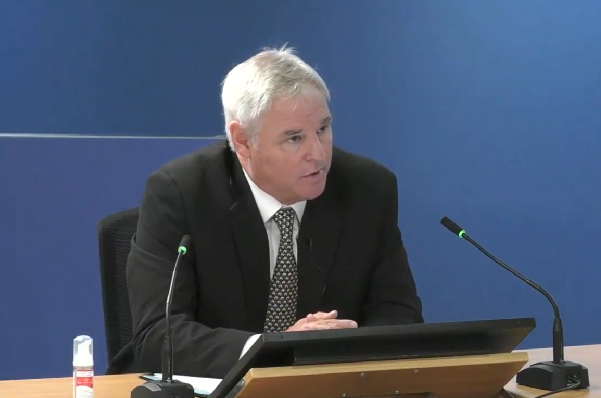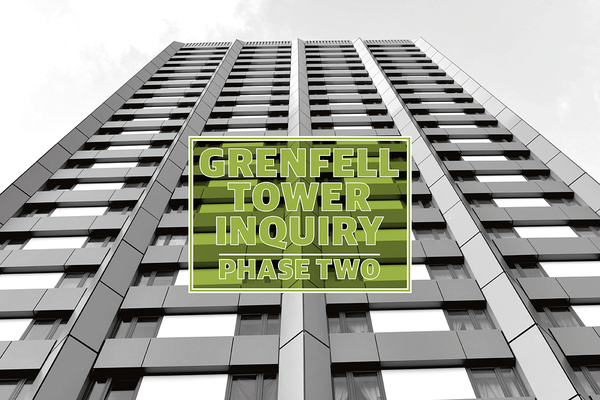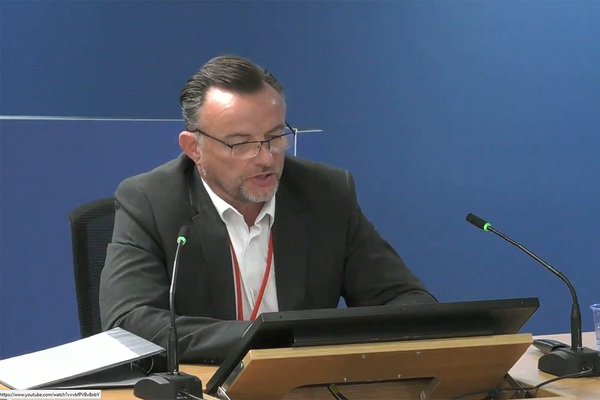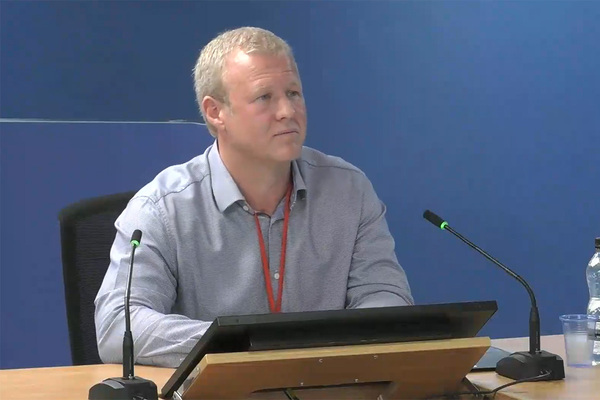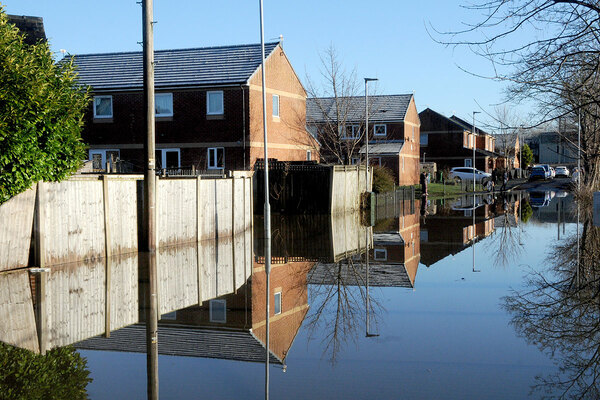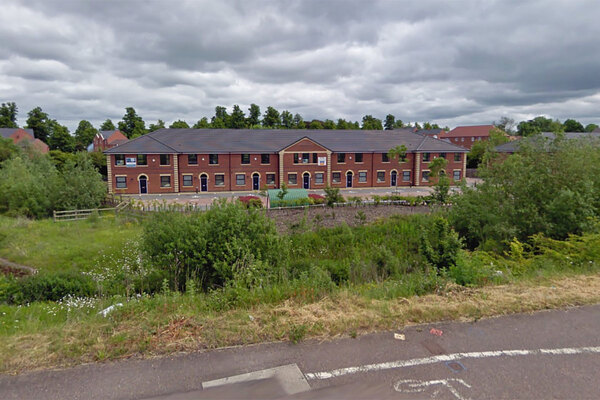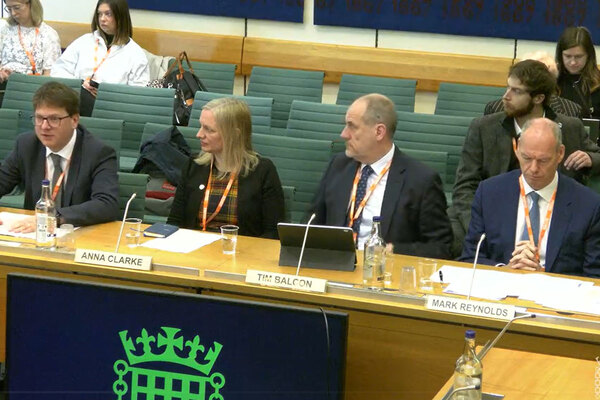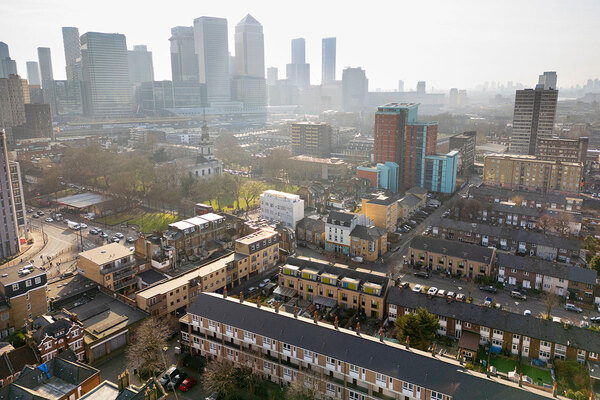‘We will be quids in,’ Rydon manager says in email about Grenfell cladding switch
Rydon’s commercial manager emailed his boss to say the firm would be “quids in” as a result of savings made from switching the cladding from zinc to a deadly aluminium composite material option, the Grenfell Tower Inquiry heard today.
Resuming after a five-week summer break, the inquiry today heard from commercial manager Zak Maynard, who led the time working on the costings of the project.
He was asked about Rydon’s decision in May 2014 to understate the savings that client Kensington and Chelsea Tenant Management Organisation (KCTMO) could make if the cladding was switched.
Sub-contractor Harley Facades had estimated that the savings would be £576,973 or £419,627 depending on the type of fixing used, but Rydon told KCTMO the savings could be £376,175 or £293,368 respectively.
The inquiry has previously heard that the firm sought to “pocket the difference” to plug a £212,000 mistake it had made in costing the project.
Today, emails revealed that after it had presented these costs to the TMO, Harley Facades realised it had overestimated the savings it had sent Rydon by “a six-figure sum”, reducing the amount Rydon could gain through the switch.
An email from Steve Blake in June 2014 said the approach should be to “compromise on the saving and at some point in the future reverse pass it back up the chain”.
Richard Millett, counsel to the inquiry, asked Mr Maynard if this meant “you should organise the finances so that Harley’s cost error would be absorbed by the TMO”.
Mr Maynard replied: “He says ‘back up the chain’, so that could be right.”
“And that means Rydon wouldn’t lose any profit at all?” asked Mr Millet, to which Mr Maynard replied “yes”.
Internal emails show a discussion within Rydon that the remaining saving, following Harley’s error, should be split “50/50 with Harley as it was their cock-up”.
“Probably go 50/50 on the face-fixed [one of the fixing options] as we would still pocket £100k on that,” Mr Maynard wrote.
Harley then agreed to split the saving, and Mr Maynard wrote: “First part of the battle won. Now we will agree to give them 10% of savings back and we are quids in!!”
Asked about this, Mr Maynard said he was “joking” in the email and added: “It just means more profit.”
The inquiry also heard that a budget set for materials for the window surrounds of £8 per square metre turned out to be around half the true cost, putting more pressure on budgets.
The inquiry also saw an email from a sub-contractor that was interested in working on the windows and quoted £148,000 for the job. Mr Maynard rejected this offer, saying that accepting it would “represent a huge loss to ourselves”.
“Were you not taking a risk that going elsewhere and for less money would put pressure on the quality of work you would get from this new sub-contractor?” asked Mr Millett.
“Obviously we had other members of our supply chain who we were comfortable using… and they were obviously cheaper than this sub-contractor,” Mr Maynard replied.
“Is this an item where incorrect estimation had led to further cost pressure and a reduction in quality?” Mr Millet continued.
Mr Maynard responded: “An estimate had been provided that we were struggling to match, so yeah.”
The inquiry has previously heard about concerns over the quality of workmanship on the windows, and the on-site decision to substitute the specified non-combustible insulation for highly combustible Celotex and Kingspan.
Previous witness Gary Martin had said Mr Maynard’s team would be responsible for checking and approving this change, but he rejected this.
“He should be aware of what’s going into his building, he shouldn’t be relying on a surveyor to do that, they don’t have the technical knowledge,” he said.
During the day the inquiry also published an updated timetable that says evidence is likely to run until December 2021.
This follows the 17-week break due to the coronavirus lockdown and a one-month hiatus because of an application for protection against self-incrimination from corporate witnesses. The inquiry had been originally due to complete evidence in May 2021.
The inquiry remains without a third panellist to assist chair Sir Martin Moore-Bick in his review of the evidence, and is awaiting an appointment from government. A Cabinet Office source told Inside Housing this week that the process is at an “advanced stage” but no information has yet been given to core participants.
The inquiry continues tomorrow with the first witnesses from Harley Facades.
Sign up for our weekly Grenfell Inquiry newsletter
Each week we send out a newsletter rounding up the key news from the Grenfell Inquiry, along with the headlines from the week
Already have an account? Click here to manage your newsletters
